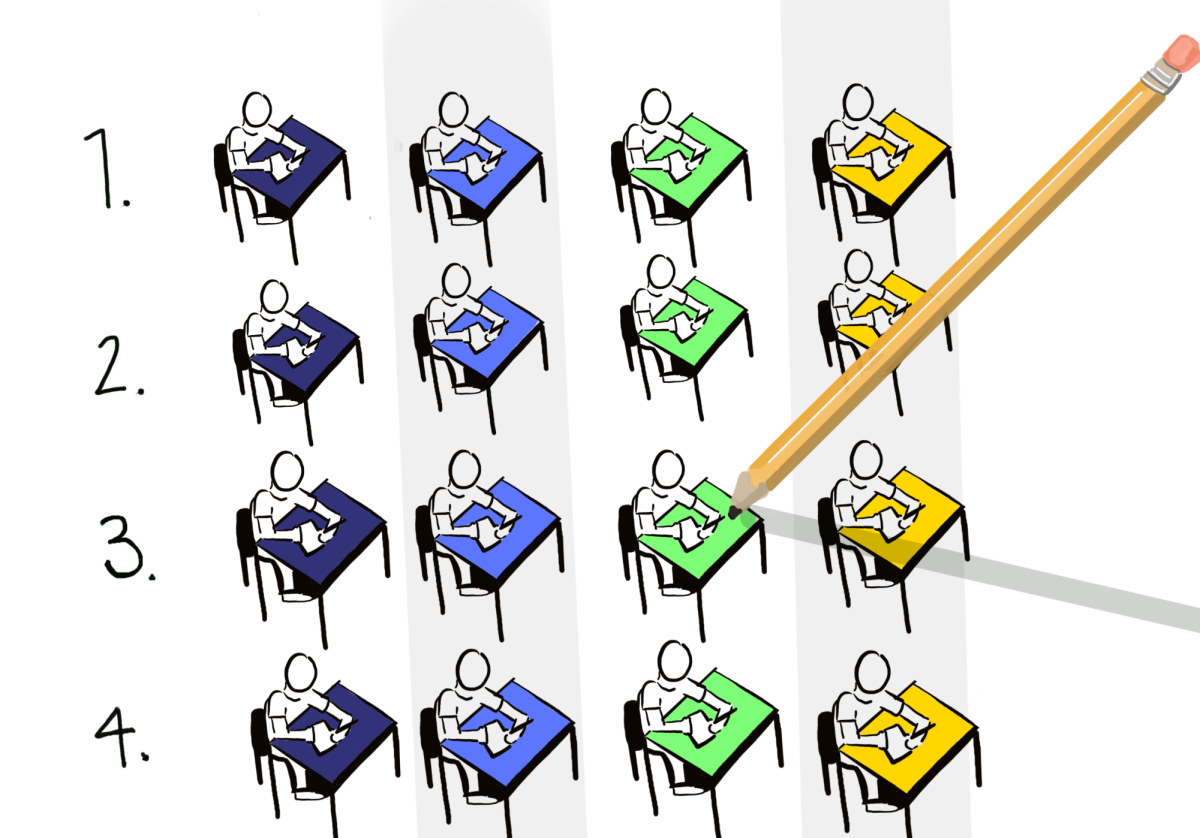In March, UT reinstated mandatory standardized test scores in admissions. After four years of test-optional policies, this decision raises broader questions about the equity of standardized tests and the higher education system.
Although standardized test results often skew in favor of wealthy students who can afford private tutors and test retakes, the higher education system is unfair regardless of tests. They reflect the socioeconomic disparities that already exist within society and academics. Removing standardized testing will not remove these inequalities; it will simply remove the data that proves them.
“A standardized test score … is a piece of information,” assistant sociology professor Jordan Conwell said. “So on its own, it’s not fair or unfair. It becomes fair or unfair depending on what we think the score measures and what we then do with it.”
Individuals from wealthier backgrounds score higher on the SAT and succeed in the higher education system at a greater rate than those from lower-income backgrounds.
“Accessing higher education, navigating higher education, and then taking what you do in higher education and linking it to your goals for your life on average tends to be easier for students from higher-income and wealthy backgrounds than those from lower-income and wealth backgrounds,” Conwell said.
Wealthy students are disproportionately more successful in college due to the abundance of academic resources available to them from an early age. These include private tutors, better quality primary and secondary education and a greater variety of extracurricular activities. Because of socioeconomic disparity, these advantages will continue to exist whether or not standardized tests act as an indicator.
“On average, students from higher income and wealth backgrounds have had better opportunities in K-12 to prepare for college, and they’re more likely to go,” Conwell said. “They tend to have had more access and opportunity to build the skills that help navigate the day-to-day interactions of college.”
Scholars have argued that standardized tests disadvantage students from lower-income backgrounds, disproportionately impacting students of color. Additionally, various studies suggest that standardized tests are not an adequate measure of a student’s academic skills.
“(The test is) limited (because) it’s not testing our students’ creativity,” said Natalie Grinblatt, admissions consultant at Accepted.com and former admissions dean at the University of Michigan, Cornell and Arizona State University business schools. “It’s not testing critical thinking. It’s not testing collaboration skills. It’s not testing leadership skills. It’s not testing determination.”
Although standardized tests slant toward students from wealthy backgrounds, they are still a valuable predictor of students’ potential success in college, particularly at UT. According to a March report from the Office of Student Success, students who opted to submit their scores performed better during their first year of college, with an average GPA 0.86 grade points higher than those who applied test-optional. Those same students were also 55% less likely to receive a GPA of under 2.0. Despite arguments to the contrary, standardized tests can predict student success.
“(A test) allows for one single measure to see how well a student will do,” Grinblatt said. “It allows for another data point that they don’t necessarily have if they go test-optional.”
To address the inequalities showcased by test scores, UT and the entire higher education system must first address the structural inequalities present in higher education. UT must take the initiative to close the income-success gap and ensure students from all backgrounds have a fair shot in the future.
Ava Saunders is a journalism and government freshman from Wheaton, Illinois.














